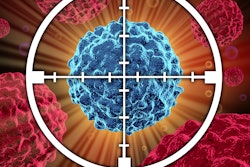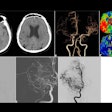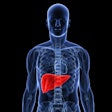About 50% of all cancer deaths around the world are due to modifiable risk factors, according to the American Cancer Society's (ACS) latest report, The Cancer Atlas.
Nineteen million people are diagnosed with cancer, and 10 million die from the disease each year, the ACS said, noting that without intervention, these numbers could rise to over 33 million cases and 18 million deaths by 2050 due to the aging of the population.
The Atlas reported the following:
- Lung cancer is the most commonly diagnosed cancer and the leading cause of cancer death worldwide, killing about 1.8 million people every year.
- Lower-income countries are experiencing a sharp rise in incidence of lung, colorectal, and breast cancers due to increasing prevalence of risk factors associated with economic development (i.e., smoking, unhealthy diet, alcohol use, excess body fat and physical inactivity, and lower fertility).
- Cancer death rates are higher in many low-income countries due to poorer survival, the Atlas found.
- More than 90% of people living in low- and middle-income countries lack access to safe and timely surgical care; 23 low- and middle-income countries with populations over 1 million -- mostly in sub-Saharan Africa -- do not have access to radiotherapy.
- Cervical cancer remains the leading cause of cancer death among women in 29 countries in sub-Saharan Africa.
- Colorectal cancer incidence rates among young adults are increasing in many high-income countries, in contrast to a decrease in older adults due to reduced smoking and screening uptake.
- About 4.5 billion people (57% of the world population) lack full essential healthcare coverage.
- Implementing a set of essential cancer services as part of universal health coverage could save more than 7 million lives by 2030.
"The report stresses the need for prioritization of public policies for health promotion, tobacco control, vaccination ([hepatitis B virus] and HPV), screening, and early diagnosis," the society said.
"A substantial proportion of cancer in each country can be prevented by implementing resource-stratified cancer prevention and control measures, including health promotion, tobacco control, and vaccination; however, such measures are not implemented optimally in many countries because of a lack of political will," said lead report author Ahmedin Jemal, MD, senior vice president, surveillance and health equity science at the ACS.
The Atlas was produced by the ACS and the International Agency for Research on Cancer. Its findings will be presented at the upcoming Cancer Prevention Research Conference 2025 and Cancer Research U.K.





















